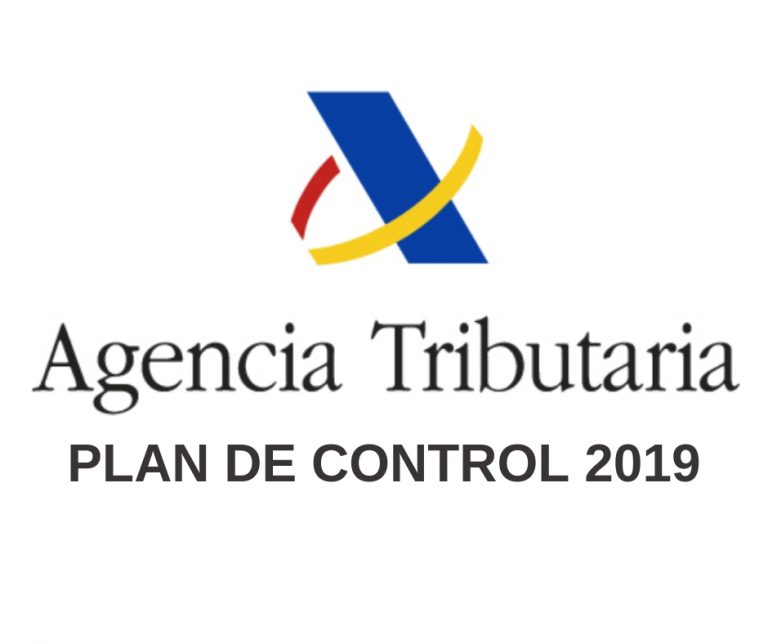We summarize the main guidelines of the 2019 Tax and Customs Control Plan, which marks the most important objectives of the Tax Agency for this year.
- VAT will be the protagonist of several important efforts in terms of assistance to the taxpayer
- Data analysis will be one of the main challenges of the Tax Agency
The tax control plans They have a reserved nature. It is logical because one of its missions is aimed at selecting what type of assumptions should be investigated. However, article 116 of the General Tax Law allows the criteria that inform them to be made public.
Thus, the Official State Gazette publishes the main guidelines for action in inspection, but also in other areas of tax application. The most relevant guidelines of the 2019 plan are the following.
Information, assistance and compliance with tax obligations.
The line is clear: it tends to enhance assistance systems and, mainly, it will be done through telematic means. Likewise, electronic means will continue to be the preferred method for complying with tax obligations.
In this field, VAT will be one of the main protagonists this year with measures such as:
- The VAT Virtual Assistant (AVIVA), whose design work is expected to be completed in October.
- Updating the contents of the virtual assistant IBS.
- The possibility will be studied that VAT taxpayers not covered by the SII can access tax data available to the Tax Agency through the SII on operations in which they had intervened.
- When an appointment is requested to inform us about VAT, the Tax Agency will offer us a virtual assistant to whom we can ask the question. Once we get the answer, we can decide if we really need an appointment or not.
Furthermore, a similar line of action will be followed in other taxes. For example, in personal income tax, Renta Web will continue to be promoted, the mobile app, the program "We will call you” and will even include a new version of the stock portfolio program.
The information challenge
The activities of the application of taxes and, within them, the tax inspection, do not escape the trend that occurs in all sectors of the economy to a much more intense and intelligent use of information.
On the one hand, the Tax Agency intends to continue giving impetus to various projects that increase the availability of tax information, among which stand out:
- The IBS.
- The automatic exchange of information on financial accounts abroad owned by residents in Spain.
- The receipt of information regarding the so-called “Country by Country Report” as part of the OECD/G20 Project on Base Erosion and Profit Shifting (BEPS).
In addition to collecting more data itself, the Tax Agency is working on more intensive exploitation of the data. It is planned not only to influence the use of analysis technologies, but also to readapt the risk analysis as new information arrives.
Concealment of economic activities and abusive use of companies
The concealment of facts with tax significance related to economic activities, the aim is to attack by increasing organizational coordination, but also through computer auditing. In this last field, the forensic audit has been incorporated.
As for the main lines of verification, the actions will focus on:
- Sectors in which the high degree of underground economy generates social rejection.
- Visiting company headquarters to detect irregularities.
- Control of VAT fraud in sectors very focused on the final consumer.
- Societies lacking a real productive structure.
- Actions on previously investigated taxpayers.
- Legal entities used for the sole purpose of channeling the income of individuals to pay less taxes.
- Related operations between a company and a partner or family group that controls them.
The new business models
One of the objectives is to study and carry out research activities related to some of new business models that are emerging with digitalization, such as:
- The fintech and new means of payment.
- Electronic commerce and the logistics activities linked to it.
- Operations carried out with cryptocurrencies.
VAT
On the one hand, the SII calls for the development of contconstant role of economic activities. On the other hand, there is a need for an annual VAT control system alternative to model 390 for those subjects who no longer have to submit it.
On the other hand, it is intended attack VAT schemes, mainly through the following mechanisms:
- Purification of the Registry of Intra-Community Operators (ROI).
- Greater control of the census of entities to exclude potential clients of criminal organizations.
- Control of VAT fraud schemes in intra-community operations and others linked to them referring to electronic material and components not covered by the reversal of the taxable person.
- Control over intra-community VAT fraud schemes that operate in the vehicle sector.
- Combined verification and investigation of imports of consumer products, textiles and others of Asian origin.
- Control of active plots in the hydrocarbon sector.
- Control over tax warehouses and warehouses other than customs warehouses.
- Control of reimbursement of input VAT on purchases of goods made by non-resident travelers.
Corporate tax
In this area the main lines of action will be:
- Limited verification procedures.
- Inspections themselves based on inconsistencies with normal sector data. In that sense, the Tax Agency will try to ensure that the critical ranges are known to the taxpayers.
- Short-term inspections for specific risks.
Control of large companies
In this area, the main objectives are two. On the one hand, it is intended reinforce legal security and avoid conflict. Along these lines, emphasis will be placed on aspects such as agreements prior assessment procedures, simultaneous controls or friendly agreements between the tax administrations of different countries in certain types of conflicts.
Secondly, obviously, the verification activities are priority. However, given the complexity that these investigations can entail and the resources they consume, it is intended to focus many efforts on case selection.
In principle, the main lines of action would focus on:
- Anti-avoidance measures.
- Transfer prices.
- Permanent establishments.
- Tax havens and preferential regimes.
Other actions
In addition to the aforementioned priorities, tax control will reach many other areas as:
- Asset analysis to detect assets, hidden rights and undeclared income.
- Tax groups and entities.
- Control and updating of census information.
- Control actions within the framework of relations with provincial treasuries
- Analysis of record books.
- Control of non-filing taxpayers of personal income tax.
- Control of real estate capital returns in personal income tax.
- Design and development of a withholding control tool at the retainer's headquarters.
- Taxation of non-residents.
- Collaboration with the Labor Inspection and Social Security.
- Control of the correct application of the special tax regime for non-profit entities.
- Fight against customs, special and environmental tax fraud.
- Prevention and repression of smuggling, drug trafficking and money laundering.
- Control of fraud in the collection phase.
- Collaboration with the autonomous communities.
Tax control plans guide society in general and, in particular, entrepreneurs towards the main milestones in compliance with tax obligations, but also about the actions that are put in place to guarantee the legal security and that all economic agents compete by complying with the “rules of the game” in tax matters.
Fountain: SAGE

































